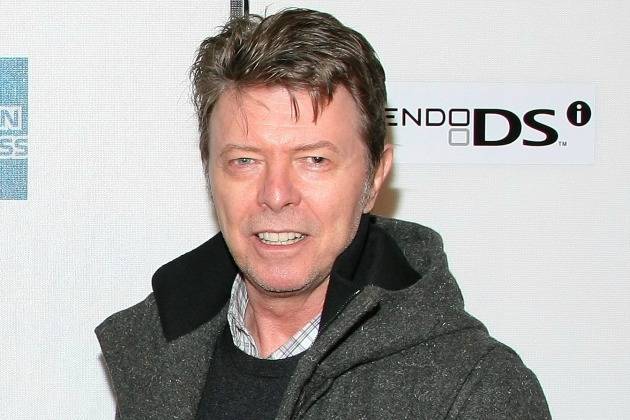
Associated Press
David Bowie.
Monday, Jan. 11, 2016 | 9:26 a.m.
Thirty-five years ago, Johnny Carson introduced David Bowie on “The Tonight Show” and was thrown off by screams from the audience.
Thrown off his game, the talk-show legend called out to the shouting fans: “He better be good after this.”
Johnny, bless him, had no idea what he was bringing to the stage.
Playing the part of street tough and debonair gentlemen — even if he seemed a most feminine man — Bowie was dressed in the same red jacket and T-shirt fashion as James Dean in “Rebel Without a Cause.” He sashayed through “Life on Mars” and “Ashes to Ashes,” the latter from his then-newly released album “Scary Monsters.”
Though he’d been a top-selling rock star for most of the previous decade, this 1980 performance and Carson’s oblivious intro reminded that Bowie did not always fit so comfortably in the mainstream.
Which is what made him so great.
Bowie was the first androgynous entertainer, and even the first androgynous person, I had ever seen. His early video clips and photos from the “Ziggy Stardust” era showed a look that was very Mod and female, his face painted with glittery makeup and his hair dyed red. He was theatric and costumed, like a Broadway performer.
There is no single memory of Bowie’s sound or appearance, over the years, for all the reinvented styles he mastered. The spikey-mane punk in the sparkling one-piece singing “Space Oddity” giving way to suave showman in the canary-yellow suit in the “Modern Love” video. He even found an avenue to duet with Bing Crosby on “Little Drummer Boy,” still a holiday classic.
It was no accident that one of Bowie’s greatest moments was his duet with the similarly adventurous Freddie Mercury on “Under Pressure,” with the line, “This is our last dance, this is ourselves.”
When news of Bowie’s death arrived in a text message late Sunday night, I happened to have just returned to his 1983 album, “Let’s Dance.” This was his bestselling album ever, moving 7 million copies, and, when I was in high school, we played it endlessly.
I’d been in conversation about great music recently, and the discussion turned to Bowie and that album, which featured “China Girl,” a satire of Asian female stereotypes co-written by Iggy Pop in which the singer offers, “My little China girl, you shouldn’t mess with me. I’ll ruin everything you are. I’ll give you television. I’ll give you eyes of blue. I’ll give you man who wants to rule the world.”
That searing message, in a song you could also easily dance to.
The timing of Bowie’s death of cancer coincided, powerfully, with his 69th birthday Friday, the Jan. 8 date shared by Elvis and the release of his last album, “Blackstar.” The 10-minute video of the title track shows a frail and obviously ailing Bowie with an ace bandage wrapped around his head and black buttons covering his eyes.
“Something happened on the day he died. The spirit rose a meter and stepped aside. And somebody took its place and bravely cried, I’m a Blackstar, I’m a Blackstar.”
Stardust to Blackstar, the last living message from David Bowie. He’d better be good, we were warned. Oh, yeah, he was that, and far beyond, a trailblazing artist who challenged convention, defied time and even explored outer space.
Follow John Katsilometes on Twitter at Twitter.com/JohnnyKats. Also, follow “Kats With the Dish” at Twitter.com/KatsWiththeDish.



Join the Discussion:
Check this out for a full explanation of our conversion to the LiveFyre commenting system and instructions on how to sign up for an account.
Full comments policy